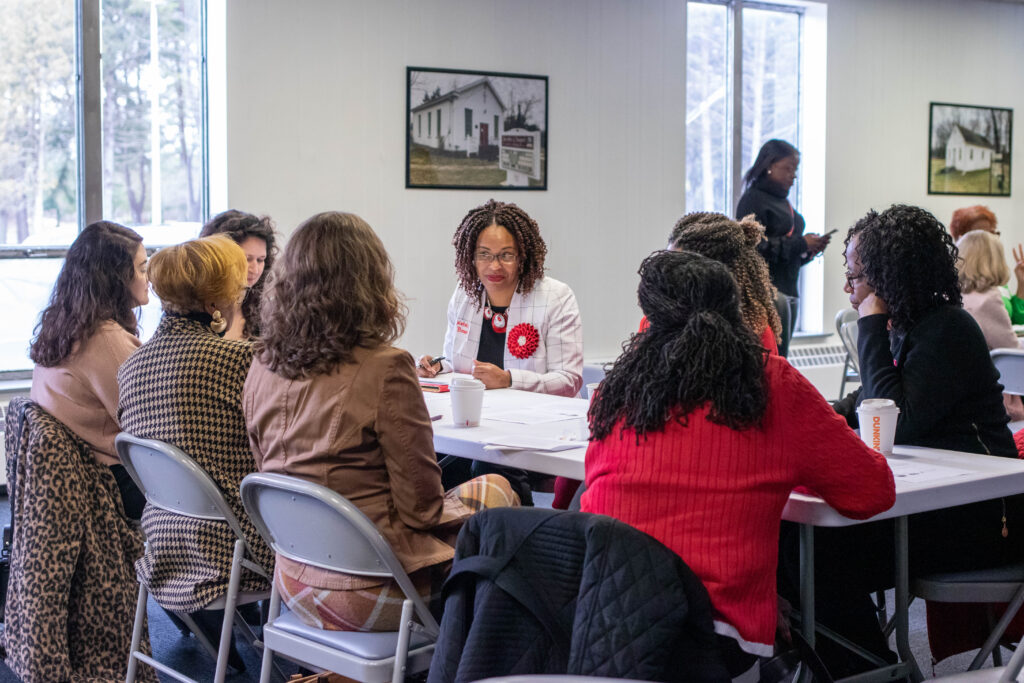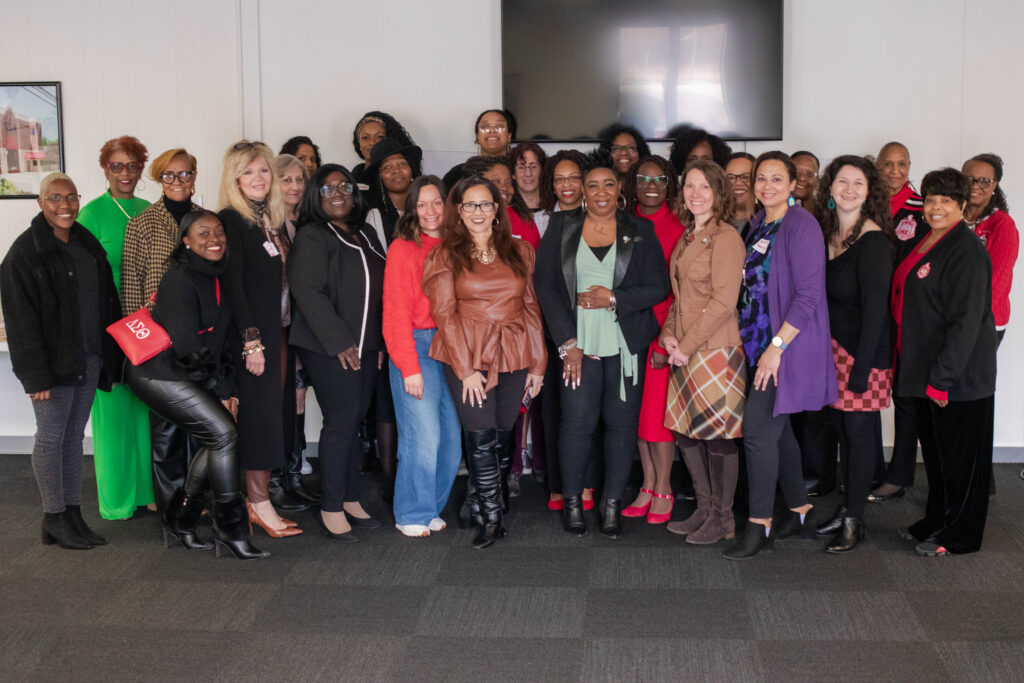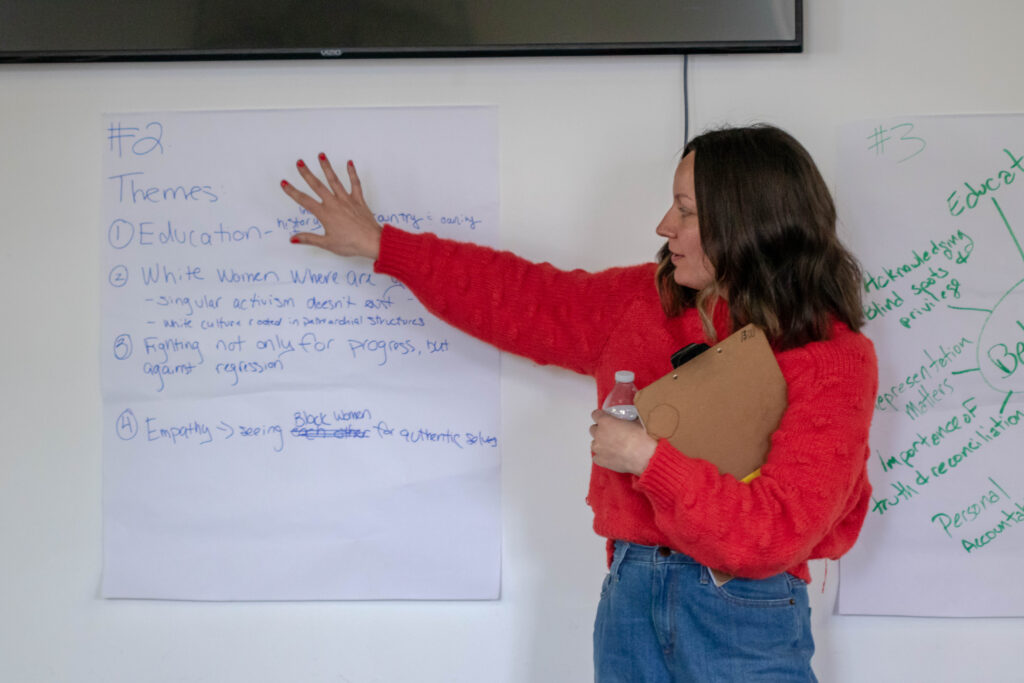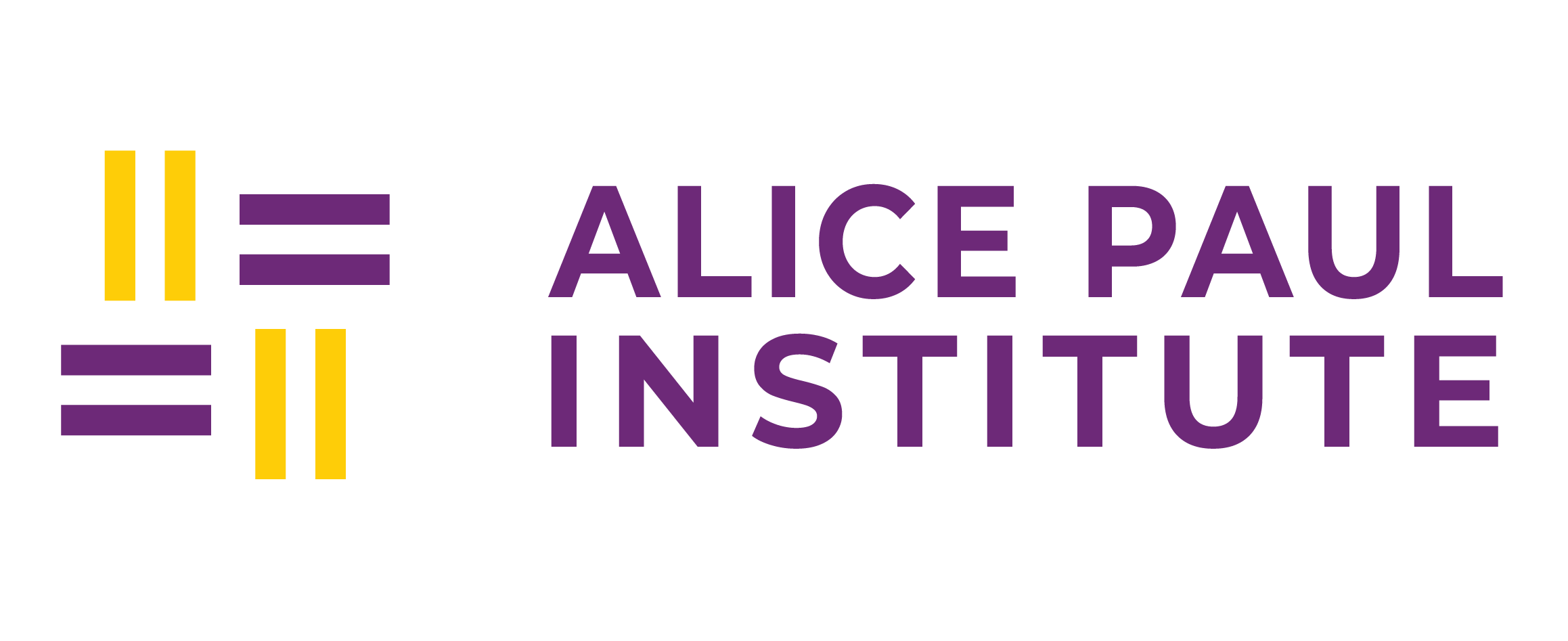AIR: Accessibility, inclusion, and responsibility
Co-presented by The Burlington County Minority and Equality Rights Task Force, Burlington County Women’s Advisory Council, The Rancocas Valley Alumnae Chapter of Delta Sigma Theta Sorority, Incorporated, and the Alice Paul Center for Gender Justice.
This series of community conversations examines the legacy of the women’s movement and issues of belonging with the goal of creating a community-driven policy recommendation to be presented to Burlington County stakeholders at the end of 2024.



key findings
Session 1: March 4, 2023
- In addition to gender, there is a persistent racial opportunity gap.
- We aren’t having honest cultural conversations about the ongoing legacy of racism in our society.
- Paying lip service to diversity doesn’t create actual inclusion or belonging.
- Representation and education are reciprocal and equally necessary.
- We think about our issues as separate, but they are all intertwined.
Session 2: September 9, 2023
- Based on the takeaways from session 1 five themes were identified. Through conversation, each group identified a specific problem impacting belonging within each theme.
- Education- problem: people making decisions about education need to hear about the needs of their diverse students and teachers.
- Health equity- problem: there are persistent racial disparities in maternal health outcomes.
- Workplace culture- problem: workplaces use DEI as a checkbox for funding, instead of supporting honest employee participation in workplace culture.
- Public policy- problem: many people lack the information and support they need to engage in local politics.
- Accessing community resources- problem: local organizations are too siloed, and we do not have an infrastructure that helps people easily understand all the local resources that exist.
Session 3: April 27, 2024
- Many community members are not aware of the different services and programs their government provides.
- Lack of transparency for elected officials reduces public trust.
- Partnerships and community as means to achieve positive change.
- Intentional communication lacking between service providers, government agencies, and Burlington County citizens.
- Our education systems are not encouraging critical thinking or civic engagement.

